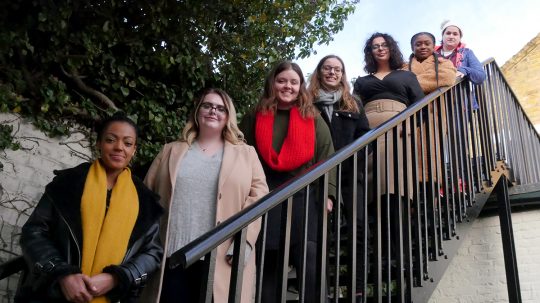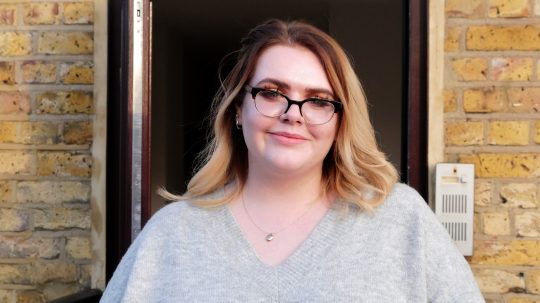Childcare costs can threaten the right to a family life, but the UK government has rejected calls for an independent inquiry into soaring prices.
In September, a petition highlighting the impact of unaffordable childcare, which attracted more than 113,000 signatures, was discussed in the House of Commons.
Rising costs, which are leaping ahead of inflation, are endangering the right to a private and family life, set out in Article 8 of the Human Rights Act. These costs, and their impact on families, also pose a threat to the right to an “adequate standard of living” set out in the International Covenant on Economic, Social and Cultural Rights.
However, the government declined to launch an inquiry into childcare costs, asserting that “support is available”. It currently costs a family with two children under two-years-old in nursery for 50 hours a week about £13,700 a year, according to childcare charity Coram.
Improving childcare provision could increase, in particular, women’s contribution to the economy by £10 billion a year, a recent study found, yet the government is adamant that an inquiry will not be launched into how the childcare sector is working for families and the economy.
Is The Cost Of Childcare Really An Issue?

Credit: Tina Floersch / Unsplash
Although government support is available for parents struggling with the cost of childcare, it appears to be failing some families.
Based on a variety of assessment criteria such as your income and your children’s ages, the government offers up to 30 hours of free childcare for working parents of three and four-year-olds. These hours usually only apply during school term time. The earnings limit, which is £100,000 per year, does not apply to self-employed people who started their business less than 12 months ago.
For self-employed parents, however, if one parent is self-employed and earning below £650 a month, you are not eligible for more than 15 hours a week.
At 40, despite my earnings increasing gradually over the years, I’m no better off than I was in my late twenties,
After David Gardiner, a self-employed father of two children in nursery, discovered this, his family were left searching for an extra £350 per month.
“I think that the rules don’t account for the fact that when you’re self-employed and/or trying to start up a business, you might try and fail a few times before succeeding,” said Gardiner, a digital marketer. “Personally, I’m seriously thinking about putting my freelance work aside and getting a job for a couple of years, just to get the full allowance.”
In the school holidays, UK parents pay on average £140 a week on childcare. In addition, the average cost for families of using after school clubs for five days is £62 per child per week.
The cost is a career blocker, but finding appropriate childcare is also becoming increasingly difficult. In the first three months of 2021, it was reported that 2,087 childcare settings shut down due to a lack of funding in a sector already struggling to meet demand.
During the petition debate, a survey showed that 77% of respondents ‘strongly agreed’ or ‘agreed’ that childcare costs had prevented them from securing the kind of care they need. A further 58% of respondents ‘strongly agreed’ or ‘agreed’ that they would have difficulty finding the childcare they need.
While childcare costs are skyrocketing, nursery workers are among the most poorly paid workers in society – one in ten are living in poverty, researchers found. Meanwhile, parents in the UK are paying the second-highest childcare costs in the world, according to an OECD study. Another survey of more than 20,000 working parents, organised by Mumsnet and a collaboration of other organisations, also showed that a third of parents are spending more on childcare than rent or mortgage payments.
How Do Childcare Costs Infringe On Human Rights?

Credit: Alexander Dummer / Unsplash
In the grand scheme of human rights breaches, the cost of childcare may appear inconsequential. However, without access to affordable childcare, families can feel like they are being pulled apart at the seams.
The right to a private and family life includes “a right to participate in essential economic, social, cultural and leisure activities”, which soaring childcare costs endanger.
A survey of 1,800 parents by Pregnant Then Screwed revealed that costs are a trigger for financial anxiety in 84% of households. Additionally, 17% of parents – mostly women – had to leave jobs due to childcare costs and 62% said they worked fewer hours due to these expenses.
“At 40, despite my earnings increasing gradually over the years, I’m no better off than I was in my late twenties,” said Isabel Mohan, head of content at childminder agency, Tiney. “I hate that our children pick up on this stress and I don’t want them to feel like they’re inconveniences that get shifted around, but the fact is we both need and want to work as close to full-time as possible so we’re making it work as best we can.”
What Is Being Done To Tackle Childcare Costs?

Credit: Tru Katsande / Unsplash
In November 2020, the Chancellor announced a £44 million investment for local authorities to increase hourly rates for childcare providers connected to the government’s free childcare entitlement offers.
The government also offers Tax-Free Childcare for children from 0-11 years old, or up to 16 for disabled children, meaning that the government pays £2 for every £8 parents pay their childcare provider, up to a maximum of £2,000 a child each year.
“We have long been calling for additional funding for the childcare sector to prevent a severe crisis,” said Felicia Willow, chief executive of the Fawcett Society, a women’s rights charity. “The pandemic has added extra urgency to our demands, as we cannot rebuild from the pandemic without a fully functional childcare sector.”
For parents like Mohan, the current system of 30 hours free childcare is simply not working.
“It isn’t currently rolled out in a very inclusive or consistent way; nurseries and childminders simply can’t afford to offer it in a way that helps families as much as it could,” she explained. “It doesn’t even cover two full days at our local private nursery, due to the way they roll it out, so when our daughter was there we were still paying over £1,000 a month to make up for the deficit.”
Although the government has dismissed launching an inquiry, campaigners are not giving up and hope to protect future families’ rights by pushing the government to subsidise childcare costs further.






